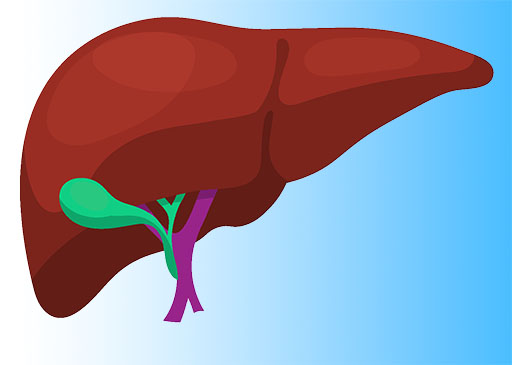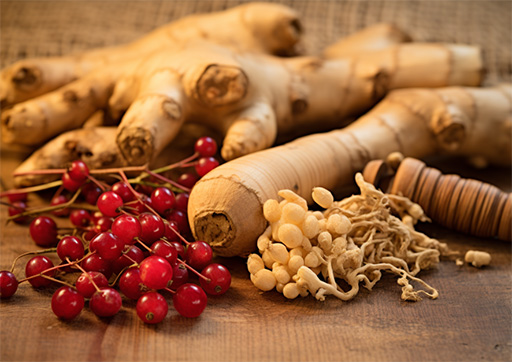How To Improve Liver Function With Lifestyle Changes

Why The Liver?
The liver is one of the essential organs in the body. It helps to process food and keep us healthy by breaking down toxins and cleaning waste from our bodies. The liver also produces blood cells, bile, and proteins. If the liver is damaged or doesn’t work correctly, it can lead to health problems such as cirrhosis (a severe form of hepatitis).
When toxins are present, the liver will remove them from the blood and excrete them through urine or feces. The liver also helps to synthesize new proteins to replace damaged ones, and it plays a role in regulating blood sugar levels. The liver filters blood and removes toxins, including alcohol, drugs, and other chemicals. The liver also produces bile which helps to break down food in the intestine.
Foods And Drinks
Several foods and drinks have been shown to improve liver health through nutrition. A healthy diet of fruits and vegetables, whole grains, blueberries, and fish oil supplements. Fruits and vegetables are a good source of vitamins and minerals, including antioxidants that can protect the liver.
They also contain fiber which helps to keep the stomach clean and healthy. Whole grains are a good source of nutrients, such as thiamin, niacin, folate, magnesium, potassium, and zinc. Low-fat dairy products contain high levels of calcium and vitamin D.

What To Avoid
Avoid alcohol, caffeine, smoking, and over-the-counter medications to improve liver function.
Alcohol consumption can damage the liver over time. The liver is responsible for breaking down and removing toxins from the body, and alcohol can cause inflammation and scarring in the organ. This damage can lead to liver cirrhosis, a severe health condition. Alcohol abuse can also increase the risk of other health problems.
Smoking is a significant cause of liver issues. The nicotine in cigarettes causes inflammation and damage to the cells that make up the liver. Over time, this can lead to cirrhosis (a permanent loss of function), which can be life-threatening.
Over-the-counter (OTC) medications can affect it depending on the drug’s use. Some OTC medications can cause liver damage if taken in larger doses or for longer periods than recommended. When taking OTC medications, it is essential to speak with a healthcare provider about how best to take them and whether any adjustments need to be made.


Pharmaceuticals And Herbs
Several pharmaceuticals can help the liver. These medications may address various conditions and help improve the liver’s overall health. These drugs include hepatitis C (HCV) therapy, statins, and folic acid supplements.
HCV therapy is the most effective way to address HCV. It stops the virus from replicating and spreading in the body. Statins are medications that help reduce LDL (bad) cholesterol levels in the blood.
There are a variety of other medications that can help improve liver health. These include antibiotics, antiviral drugs, and painkillers. Some medicines may be taken for general health purposes. Each person’s situation is unique, and the best way to improve liver function depends on the individual’s symptoms and history.
Herbs that can help the liver include bilberry, dandelion, burdock root, fennel seed, garlic cloves, and ginger root:
Bilberry – A small, blue-black fruit that grows on the shrubs of the genus Vaccinium. Bilberry fruits are valued for their high antioxidant content and are used in various cuisines worldwide. The leaves and stems of bilberries also contain astringent properties, which can be used on skin conditions such as dermatitis herpetiformis or eczema.
Dandelion – A common weed found all over the United States. It is known for its taproot, which can grow up to 18 inches long. Dandelions are used as food by many animals and humans. In addition, dandelion roots and leaves are used to make tea, wine, and other medicines.
Burdock Root – A plant that grows in temperate and cold climates worldwide. The root is used in food, medicine, and cosmetics. Burdock has been used for centuries to help with conditions such as arthritis, eczema, psoriasis, and hemorrhoids.
Fennel Seeds – A key ingredient in many Italian dishes and can be used as a condiment or flavoring agent. Fennel is also popular in Middle Eastern cuisine, where it is used to add an herbal flavor to food. Fennel seeds are often found in store-bought condiments and spices.
Garlic Cloves – Allium family members come from the onion genus. Garlic is native to southern Europe, Asia Minor, and North Africa. It is an annual plant that grows up to 1 foot in height with purple-green leaves that are smooth on the top and have small bumps on the bottom. The garlic bulb contains several cloves, which can be peeled or cut into thin slices.
Ginger – A perennial herb in the ginger family, Zingiberaceae. It typically grows to 1–2 m tall and has a stout, tapering root system. The leaves are ovate-shaped, 2–8 cm long and 0.4–1 cm wide, with serrated margins; they are green on top and dull yellow or brown underneath. The flowers are small and inconspicuous, white to pale pink, produced in panicles 10–15 cm long by 5 mm wide.
Ashwagandha – A popular herb used in Ayurveda for its liver-supporting properties. It can help protect the liver from damage caused by excess toxins and inflammation and support its ability to detoxify the body. Ashwagandha also improves blood flow to the liver, promoting efficient functioning. In addition, ashwagandha is thought to increase the production of bile, a key player in liver detoxification.
Fasting
When the liver works correctly, it can process and detox. Fasting also helps improve blood sugar and cholesterol levels, reducing the risk of heart problems. There are many different types of fasting, including intermittent fasting and time-restricted feeding. Each has its benefits and should be tailored to the individual. Fasting can help improve overall health and well-being by reducing risk factors for heart issues and improving mental health and cognitive function.
Healthy Weight
Maintaining a healthy weight is essential for many reasons, but one of the most important is that it helps to improve liver function. The fatty tissues in the liver contain toxins and inflammation-causing chemicals which can damage the organ over time. When these problems occur, the liver cannot process food properly, leading to weight gain and even more health problems.
Obesity is a significant risk factor for liver cirrhosis, the most common liver problem. People with cirrhosis have an increased chance of chronic issues than those with normal livers. Obesity increases the chances of cirrhosis and makes it more difficult for people with the condition to recover.
Exercise Improves Liver Function
Physical activity has been shown to help the organ clear toxins and reduce inflammation. Exercise also helps to boost the production of healthy blood vessels, which can help reduce the risk of developing cirrhosis or severe other liver issues. In addition, regular exercise has been shown to improve the overall quality of life by reducing stress levels and promoting better mental health.
Less Alcohol
Drinking alcohol can have harmful effects on the liver. When consumed excessively, alcohol can damage the liver cells and cause inflammation. In addition, drinking regularly can lead to fatty Liver problems. Drinking less alcohol can help to improve liver function.
When consumed in moderation, drinking alcohol does not have as harmful an effect on the liver. In addition, moderate drinkers generally have a healthier diet and are more likely to maintain an optimal weight, which helps to support the liver’s health. Drinking alcohol can be enjoyable and social, but it is essential to remember that too much alcohol can negatively affect health.
Damaged or Unhealthy Liver
The most common signs of an unhealthy liver are fatigue, nausea, vomiting, abdominal pain, dark urine, and jaundice. Other symptoms may include increased blood pressure, a change in appetite, easy bruising or bleeding, and lightheadedness when standing up quickly.
If a patient is experiencing any of these symptoms, it is essential to schedule a test to determine if their liver needs help. If the test results are abnormal, a physician may prescribe medication or herbs or establish another protocol to improve the patient’s overall condition.
Stimulating Chi
Stimulating liver chi can help promote better digestion and absorption of nutrients and reduce inflammation in the organ. Liver chi is a vital energy that helps to manage and regulate the body’s overall health. When a healthy liver chi is balanced, the organ can function properly and efficiently remove toxins from the body.
Many approaches, such as Qi gong, yoga, and meditation, may be used to stimulate liver chi. Improved digestion, better absorption of nutrients, reduced inflammation in the organ, and overall better health are all benefits of stimulating liver chi. When chi is balanced, it can help reduce stress and promote a healthy mind-body connection.
Complementary Medicine

Finally, nutritional supplements like CoQ10 may help improve liver health by preventing damage from free radicals or promoting regeneration after injury. Overall, complementary medicine can provide many benefits for the liver, including reducing inflammation and promoting detoxification.
BioScan can benefit the liver by detecting any abnormalities in the organ which may indicate a problem. A BioScan can also help identify areas of the body that may be affected by liver issues, such as the gallbladder and pancreas. If abnormalities are detected during a BioScan, additional tests may be required to determine the severity of the problem. By ensuring that all body areas are checked, clinicians can help ensure a safe and healthy life for everyone in their care.
